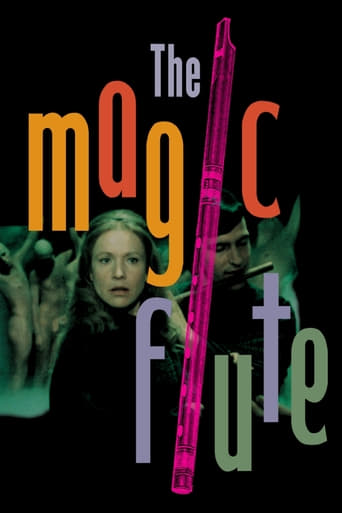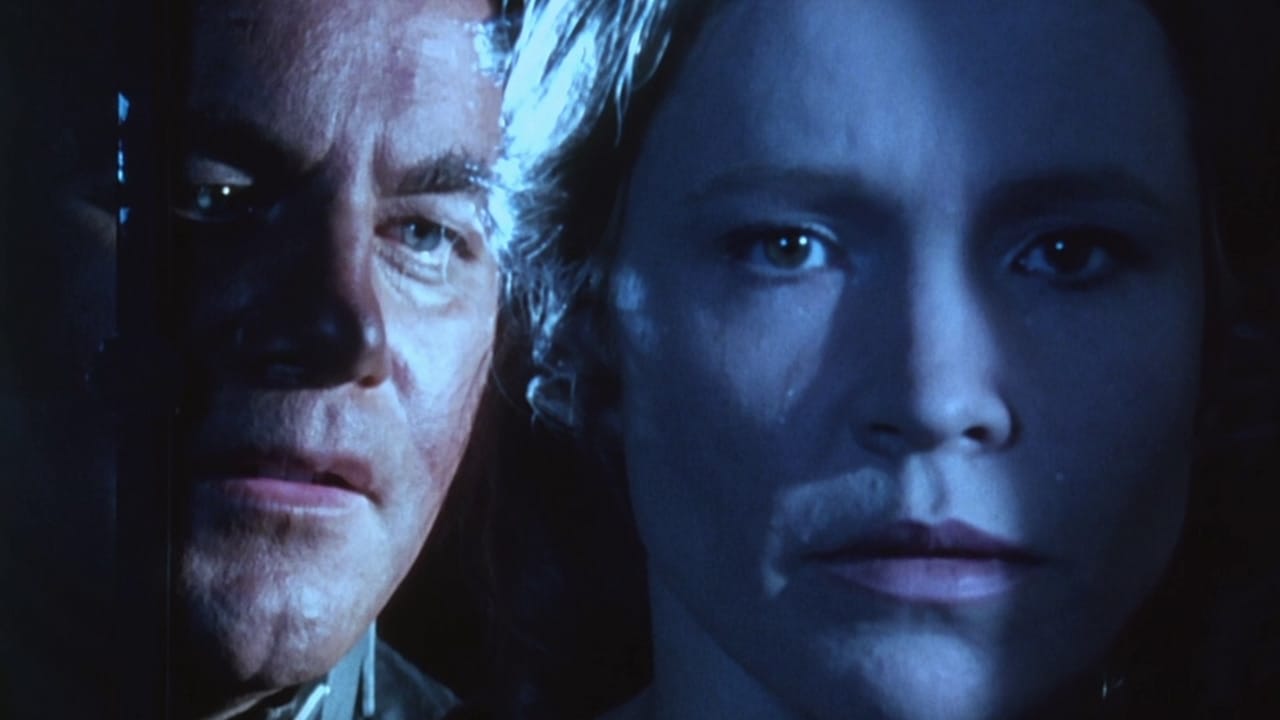Cosmoeticadotcom
Ingmar Bergman's 1975 film/TV version of Wolfgang Amadeus Mozart's opera The Magic Flute (Trollflöjten) is a serviceable film, and nothing that really takes advantage of either of its media- opera and film, to its fullest; although it begs the question as to why it was ever made? It is basically a filmed version of the play (although the singing was recorded beforehand and looped in to the film, thus allowing the actors to emote without worrying of their singing)- replete with shots of a gawking audience, but very little new is added to the tale. Yes, it's sung in Swedish, and there are a few minor changes, such as the sorcerer Sarastro being Pamina's father- which adds a tinge of Bergmanian and Freudian angst to the opera, and a few scenes being reordered, but overall it's the same familiar tale.While watching it I wondered what such a film of Swan Lake, by Federico Fellini, would have been like. Doubtless, it would have been more over the top than this production, but that fact only reinforces my query as to why film this opera the way it is filmed? Yes, Bergman is almost as famed as a stage director as he is a film director, and there are some scenes of 'backstage' antics- especially during a several minute long Intermission, where the actor playing Sarastro, Ulrik Cold- his real name, is shown reading the score of another opera, Parsifal, and another actor is reading a Donald Duck comic book, but the tale itself is rather straightforward, and at two hours and fifteen minutes, a bit too long, even if abridged from the over three hours of the opera; although one can go to the bathroom and not miss much of what is going on
. Overall, however, The Magic Flute succeeds as a film not because of Bergman's considerable skills in his art form, nor the acting skills of his cast, but because of their singing skills, and the music of Mozart. That one great artist, at his height, can aid another great artist, at less than his height, is nothing to be ashamed of, but it does make for a rather average viewing experience, something quite rare when that artist is named Ingmar Bergman.
Framescourer
The Magic Flute is a great story. It's fast-moving, funny, touching and Harry-Potter fantastical. It's ideal for film. Unfortunately, it is also an opera, a theatrepiece unavoidably diminished when not experienced live. Indeed, given this opera's fantastical nature it is a wonder that anyone manages to stage it competently at all. It would seem that mounting any sort of a production is a compromised, Faustian arrangement.Inevitably perhaps, Bergman's The Magic Flute is a model of how opera could be seen on screen. Instead of a double compromise, he essentially succeeds in offsetting the detractions of one form with the advantages of the other. Where the modern audience may baulk at the formal oddity of the actors singing to a disembodied camera, he assuages us with an overture full of that audience - modern, multicultural, multigenerational and attentive. The players themselves, though occupying fantastical roles are occasionally shown in the wings or backstage, notably in an irreverent 'interval' sequence.In this way we are left watching a staged opera - Bergman has been able to avoid the temptation of filming either on 'location' or in a studio... but if you watch closely, as the film progresses, the theatre becomes a studio, the camera moving onto the stage and changing the theatrical two-dimensions into a cinematic three. He manages to have it both ways.With this subtlety at work it's almost superfluous to talk about the production of the opera itself, although Bergman's respect for it demands our scrutiny. Given the period restrictions of the Drottingholm theatre where it was filmed it's a fairly inventive production, with a good range of quickly implemented effects (a snowy penultimate sequence is in-theatre rather than in-studio and entirely convincing). The vocal performances are mixed - Hakan Hagegard's Papageno, Irma Urrila's Pamina and Birgit Nordin's Queen of the Night the pick of the bunch. Ulrik Cold and Ragnar Ulfung as Sarastro and Monostatos are comparatively weak.A little tinkering with the running order may be to blame for a slowing of the pace just before the trials, close to the denouement. Otherwise this is a brilliant film, the perfect advocate for an opera hamstrung only by it being one. 9/10
runenaljoss
i had heard much about ingmar bergman's magic flute on film and had wanted to see it for a while. what better opportunity then, to rent it as an intro to opera for a classical-music-neophyte-friend. the answer is: nay! trollfloetjen - in Swedish, which quelled my instinct to sing along with every Sarastro aria - is a product of its time, the mid 70's. while it is a fine adaptation of the opera for film, it's more cute than anything else, the imagery would serve your children very well. it is rather straight-forward mozart/schikaneder - only that the snake in scene i act i became an adorable dragon (not very fearsome, but very cute, actually!) and the first encounter of monostatos with papageno is acted quite in opposite to the words. (only papageno is afraid, rather than the mutual fear of the 'other'...)only bergman's skill can keep the whole venture from slipping into the campy... barely. act three, however, has some of the most arresting imagery to offer that you can hope for from opera on film: the ballett dancers enacting a Dante-esque inferno in the fire-test for tamino is stunning and actually quite disturbing. the water test is almost as effective... and the onslaught of the queen of the night's army makes for another juicy scene.to introduce yourself or especially your youngens to this so charming opera, you could not pick something better. for yourself, knowing the work well, or knowing bergman's work well, you might be a little disappointed. new insights are not likely gained. a DVD of an opera production might be more satisfying then!
Oblomov_81
Adapting theater to the screen is not easy. It is difficult enough to film a play; staying too close to the text can render the tone too "stagy," while "opening up" the story can cause it to lose its authentic feel. Filming opera is twice as problematic- there is so much that is rooted to the stage and simply cannot be pulled away. How is it possible to film something that has been performed in such a specific, disciplined way for hundreds of years and keep all the elements fully intact? The answer has been provided by Ingmar Bergman, a man known to most of the world for harrowing films which peer unsentimentally into the depths of the human soul. With "The Magic Flute," Bergman takes another great talent of his- theater direction- and combines it with his cinematic abilities to create an elaborate fantasy that even his detractors can enjoy.Rather than just treating Mozart's opera as a story to be filmed, Bergman relies on familiar themes within the narrative to strike a balance between the stage and the screen while keeping the audience involved throughout. This is not to say that the story is simplified or made abundantly clear to any half-attentive viewer; the surprising accessibility of the film comes not from any reconstruction of the story but rather from an emphasis on elements that today's audience can easily recognize: sacrifices that are made for love, rebellion against the amoral nature of one's community, and magical occurrences that pop up just in time to save the hero, to name a few. Although the opera itself unfolds on a stage, with frequent reaction shots of the audience, Bergman's direction keeps us so deeply involved that tone is distinctly that of a film. Indeed, `The Magic Flute' proves to be a very cinematic opera, and there are moments when the imagery, theatrical as it is, becomes so overwhelming that Bergman has to cut to the audience to remind us that we are in a theater.`The Magic Flute' is evidence that the `epic' existed long before movies, and that much of what we enjoy viewing today owes its style to stories that have been told through vastly different mediums for centuries on end.


 AD
AD




